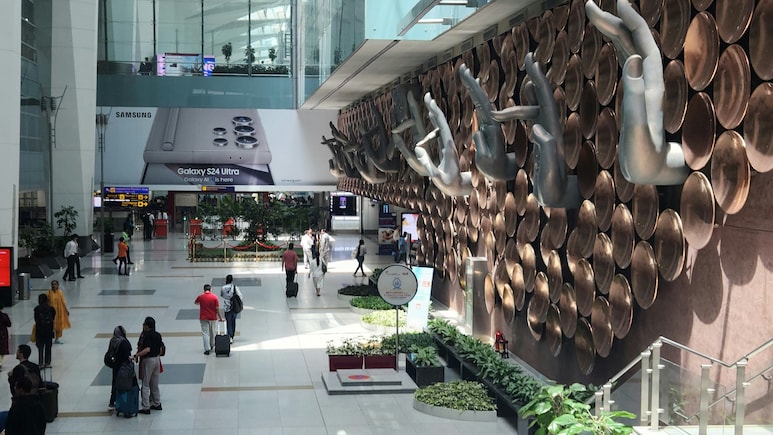
The Air Traffic Controllers' Guild (India) has raised serious concerns over the recent failure of the Automatic Message Switching System (AMSS) at Delhi's Indira Gandhi International Airport, calling it "more than a technical glitch and a reflection of deeper systemic issues in India's air traffic infrastructure."
In a letter to Civil Aviation Minister Ram Mohan Naidu, the Guild said the failure was not an isolated technical glitch but a reflection of shortcomings in the nation's aviation communication and navigation preparedness.
The disruption, which occurred between November 6 and 8, 2025, forced air traffic controllers to manually handle over 2,500 daily aircraft movements, including more than 1,500 scheduled flights and 1,000 overflying aircraft.
Describing the failure as "infrastructural, not operational, a clear lapse in system maintenance and timely replacement", the Guild noted that the AMSS supplied by Electronics Corporation of India Limited (ECIL) failed due to technical reasons and was restored only after direct ECIL intervention. The system had already exceeded its OEM-supported validity period, while procurement and upgradation had been delayed.
The letter criticised the Airports Authority of India for maintaining an expensive, manpower-heavy model in its Communication, Navigation and Surveillance (CNS) systems. It said that while original equipment manufacturers (OEMs) like Thales, Indra, Raytheon, ECIL, Honeywell and BEL provide global lifecycle support with smaller teams, AAI employs nearly 500-600 CNS personnel just to manage about 50 MSSR radar systems. By comparison, OEM ELDIS Pardubice operates hundreds of radar systems worldwide with only around 250 staff.
The Guild argued that this domestic approach doubles AAI's costs without improving efficiency, calling for OEM-backed maintenance and support contracts to ensure accountability and reliability.
It also warned that such outdated infrastructure and procurement delays could have wider safety implications. "ATC is the only real-time safety-critical service in AAI governed by ICAO and DGCA regulations, where even minor errors have direct safety consequences," the Guild observed.
It further referred to earlier submissions to the Parliamentary Standing Committee on Transport, Tourism and Culture, which had already highlighted performance degradation in automation systems at high-density airports. The Committee's 380th report, tabled in August 2025, recommended urgent review and modernisation of air traffic automation.
To prevent future breakdowns, the Guild proposed several structural reforms, including a government-led investigation into the AMSS failure, holding responsible officials accountable, and reviewing automation upgrades at other major airports such as Mumbai and Bengaluru. It also urged the adoption of redundancy systems like parallel AMSS servers and modern automation tools to ensure operational continuity.
The Guild stated that despite the AMSS malfunction, air traffic controllers ensured safe operations under extreme pressure by generating flight plans manually and coordinating closely with the Air Defence and ECIL engineers for restoration.
Track Latest News Live on NDTV.com and get news updates from India and around the world

